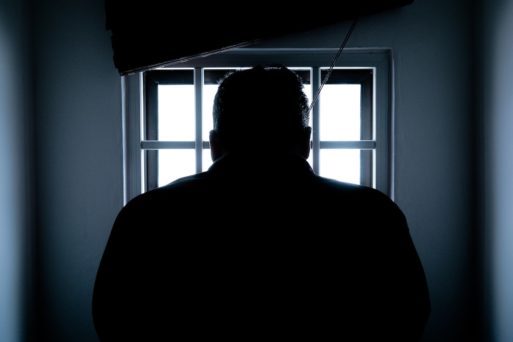
Humane Prison Project warns that U.S. prisons will essentially become nursing homes for the ill, the frail, and the dying in the decades to come.
Hospice care can benefit anyone diagnosed with a terminal illness, even incarcerated individuals. However, few inmates have access to the same level of care. Many organizations believe prison inmates are deserving of the hope and comfort these services provide for others on the outside. And they are working diligently to ensure end-of-life services become an accessible right to incarcerated persons.
Out of more than 2,000 prisons in the United States, only 75 facilities offer a hospice program onsite for inmates. That equates to fewer than 4%. And with a rapidly aging incarcerated population, health issues become more prevalent and a need to expand access to care grows. The National Institute of Corrections states the number of prisoners age 55 and older sentenced to more than 1 year in prison increased 400% between 1993 and 2013. By 2030, it is estimated that the elder population will account for one third of the U.S. prison populace.
Hospice Programs for Inmates
California Medical Facility in Vacaville is considered the gold standard of hospice care for inmates. The facility was the first one in the U.S. to implement a palliative program for prisoners during the height of the AIDS epidemic in the early 90s. Inmates housed in nearby prisoners with six months or less to live are transferred to the facility to live out their final days.
Chaplains, inmates, and volunteers help to care for them, assuring that no inmate dies alone. Additionally, a first-of-its-kind hospice garden was designed and installed at the facility by an inmate crew in 2018. Hospice patient Derrick Brooks shared his gratitude with The Reporter stating, “Somebody cares. It’s something to be thankful for. We’re inmates, be we don’t feel like that here. God has mercy.”

Prison inmates diagnosed with terminal illness often do not receive adequate hospice care and generally die alone inside prison walls.
Humane Prison Hospice Project believes those facilities without hospice programs violate prisoner rights. The organization trains incarcerated volunteers to help provide end-of-life care and grief support for peers in prisons. They currently provide training in San Quentin State Prison in California, but have plans to expand the program to other state prisons in the near future. Although these efforts are limited to the West Coast, they do offer guidance to others who wish to implement end-of-life peer support programs in prisons across the country.
Early Release For Terminally-Ill Inmates
Nearly every state in the U.S. (all except Iowa) and the federal prison system has some form of a Compassionate Release Program. These programs are designed to provide early release for terminally ill, very sick, or incapacitated prisoners with little risk of re-offending. But according to Families Against Mandatory Minimums, or FAMM, these programs are seldom used. A state compassionate release report card shows majority of states fail to release qualified candidates, while only the District of Columbia and 4 states receive an “A,” including Colorado, Illinois, Maine and Rhode Island.

According to a U.S. Sentencing Commission
report, more than 82% of prisoners were denied
compassionate release between 2019-2021.
FAMM’s mission is to “create a more fair and effective justice system that respects our American values of individual accountability and dignity while keeping our communities safe.” As recent polling shows that more than 75% of Americans support compassionate release programs, they work with federal and state lawmakers to improve programs. The organization heralds the landmark First Step Act, signed into law by President Trump in December 2018. This act expands compassionate release criteria for elderly or sick inmates on a federal level. Criteria for release was further expanded in April 2023 to include “extraordinary and compelling reasons.”

 Prison Inmates Lack Access to Hospice Care
Prison Inmates Lack Access to Hospice Care


 How Dare You Die Now!
How Dare You Die Now!

 “Help Me, Helen”
“Help Me, Helen”














